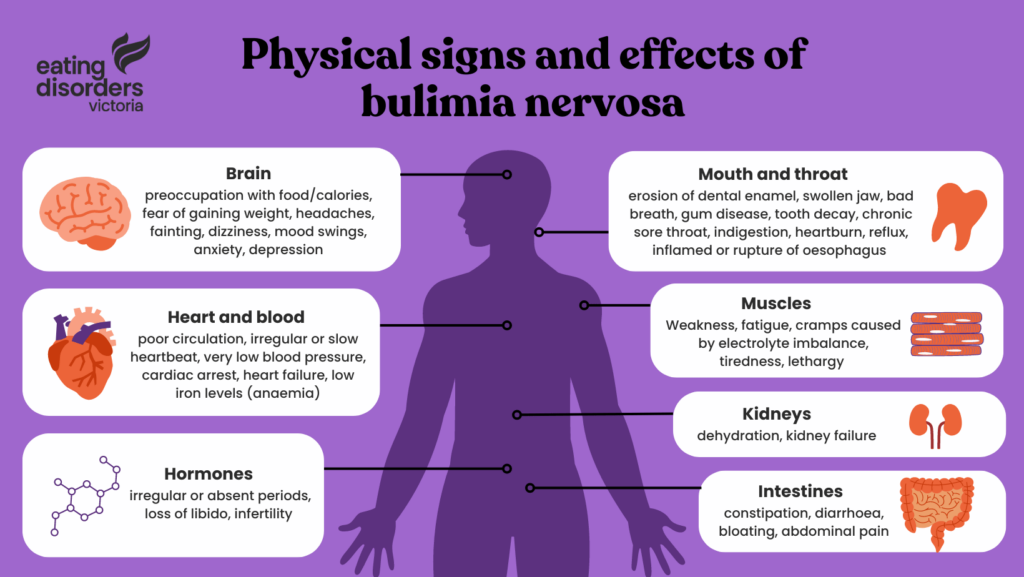There are several evidence-based treatments available for bulimia nervosa. Full recovery from bulimia nervosa is possible.
At EDV, we understand that recovery from an eating disorder is an individual and unique process. How someone defines and experiences recovery is often inclusive of their life stage, intersectional life experiences, priorities, responsibilities, support systems, and access to services. You can read more about recovering from an eating disorder here.
The first step towards recovery is to talk about what you are experiencing. This may start with a health professional, a helpline, a trusted family member or friend, a teacher, a coach, or a spiritual leader. If you find that the person you speak to doesn’t validate your feelings, or have much knowledge about eating disorders, it’s important not to ignore your symptoms. We encourage you to reach out to Eating Disorders Victoria (EDV) for a conversation, which can include next steps for receiving treatment.
Types of treatment for bulimia nervosa
Treatment for bulimia nervosa can involve working with a range of health professionals and trying several different approaches. While formal treatment is important, ongoing recovery also involves personal exploration and commitment. This can include learning to identify triggers for your eating disorder and to take actions to avoid or counteract them, reading and learning about your disorder, learning and applying coping skills, attending support groups and developing a support system to rely on when necessary.
In Australia, commonly prescribed treatment approaches for bulimia nervosa include:
- Cognitive Behavioural Therapy for Eating Disorders (CBT-ED)
- Dialectical Behavioural Therapy (DBT)
- Specialist Supportive Clinical Management (SSCM) for eating disorders
- Interpersonal Therapy (IPT) for Bulimia Nervosa and Binge Eating Disorder
You can learn more about evidence-based treatment approaches here.
Accessing treatment for bulimia nervosa
Accessing treatment requires navigating different parts of the health care system. Treatment options are available in both the public and private health system. We understand this can be confusing and encourage you to reach out if you have any questions.
For most people, treatment will start with a visit to a GP. A GP is normally a central point of contact during treatment and recovery, and can provide diagnosis, medical monitoring and referral to specialist services.
We encourage you to learn more about accessing treatment by visiting the following pages:

